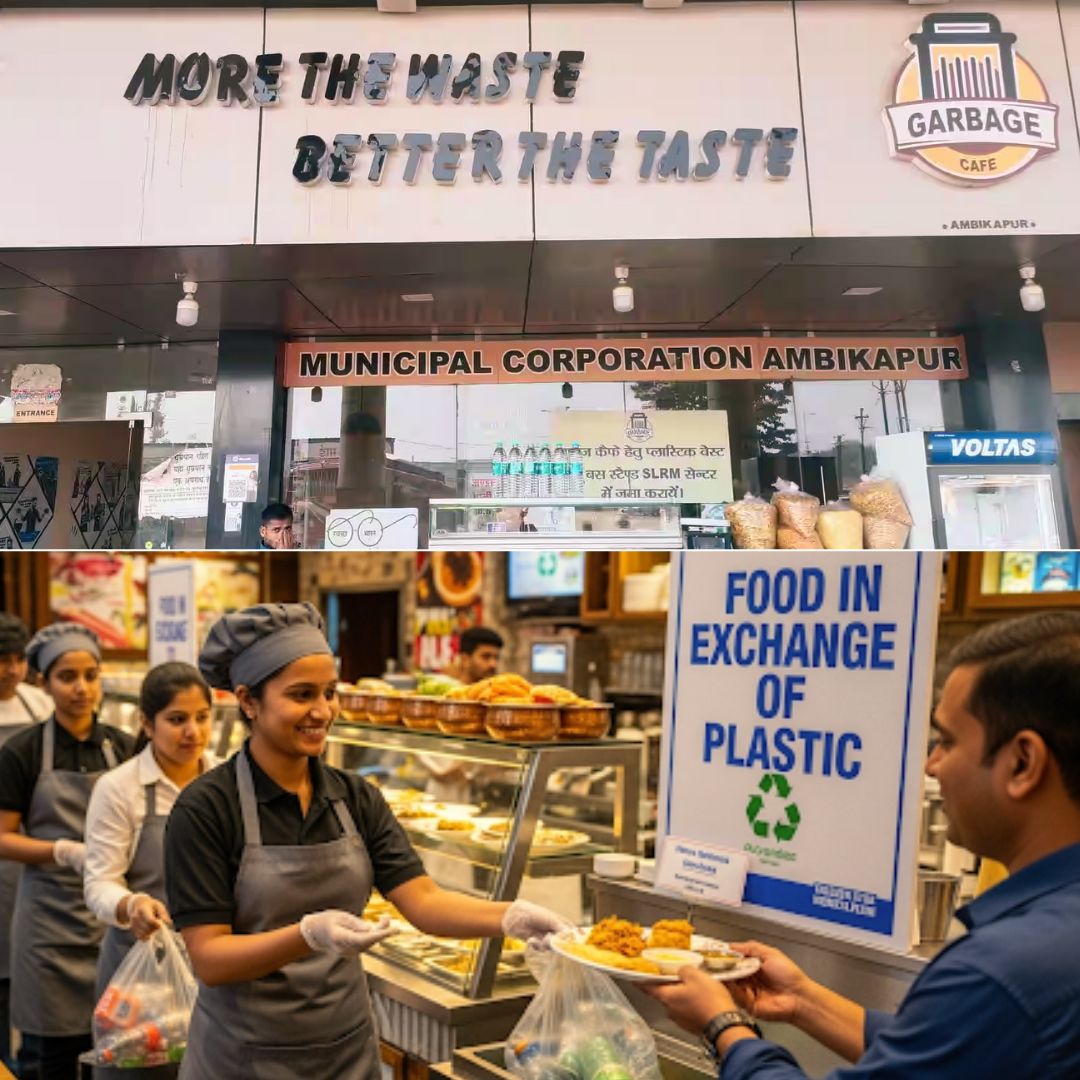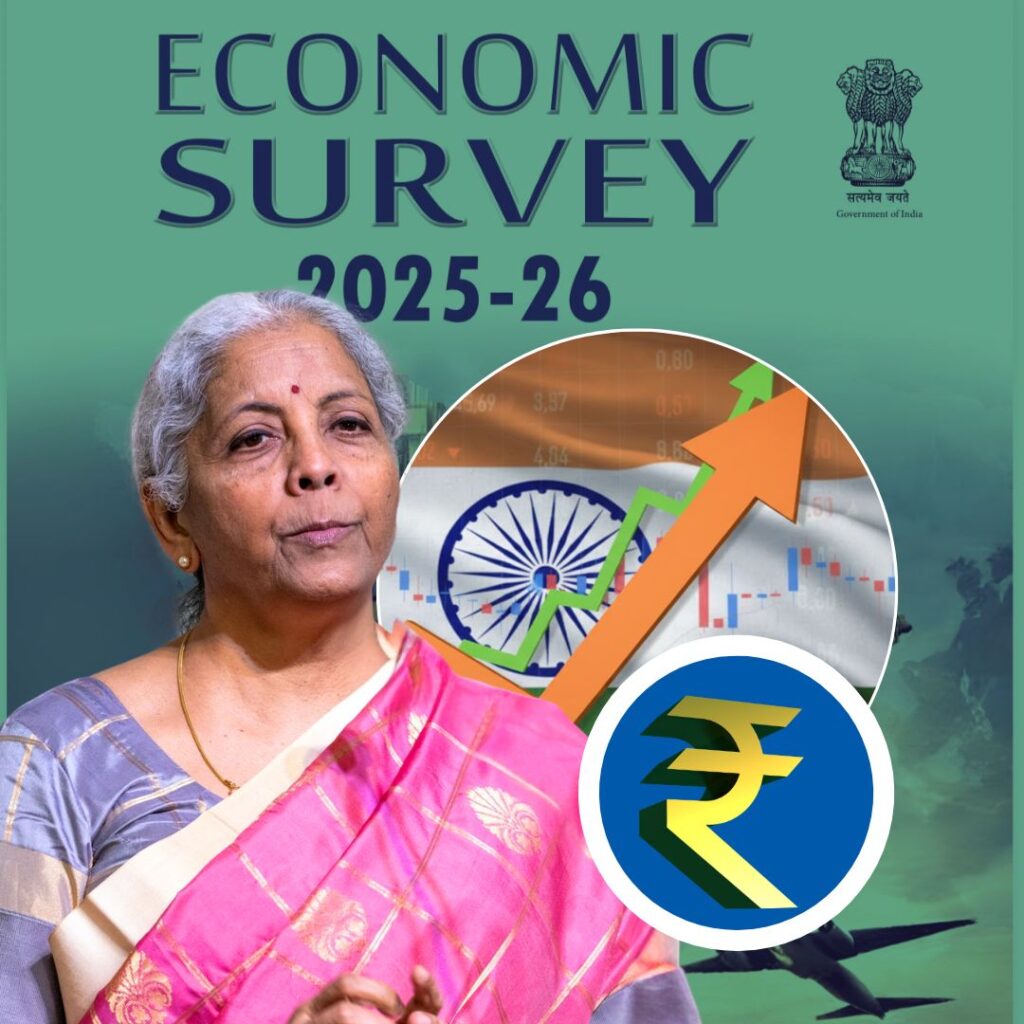India’s first Garbage Cafe, set up in Ambikapur, Chhattisgarh, since 2019, offers a distinctive solution to two persistent urban issues, plastic pollution and hunger. This initiative enables people to exchange plastic waste for food, with one kilogram of plastic earning a full lunch and half a kilogram yielding breakfast snacks like samosas or vada pav.
The cafe, funded through the Ambikapur Municipal Corporation’s sanitation budget, aims to support vulnerable groups such as ragpickers and the homeless while promoting city cleanliness. The café serves about 20 people daily and has played a role in reducing plastic waste sent to landfills from over five tonnes annually in 2019 to just two tonnes in 2024. The city’s municipal efforts, including this café, have contributed significantly to Ambikapur being recognised as one of India’s cleanest cities.
How the Cafe Works: Human Stories and Impact
The garbage cafe accepts plastic items like bottles, wrappers, and bags, offering nutritious meals in return, often consisting of rice, vegetable curries, dal, roti, salad, and pickles. In an article by BBC, Staff member Sharada Singh Patel highlights that the café goes beyond emptying stomachs, it fosters environmental responsibility by incentivising waste collection. For residents like Rashmi Mondal, who previously earned meagre amounts by selling scrap plastic, the café has been transformative.
By collecting plastic daily and exchanging it for food, her family’s food security has improved significantly. This initiative has created a dignified platform for marginalized communities, helping them participate actively in waste reduction efforts while addressing hunger.
Broader Background and Environmental Integration
The Garbage Café forms part of a larger municipal waste management and sustainability drive aligned with the Swachh Bharat Abhiyan (Clean India Mission). Ambikapur has taken several strides such as banning single-use plastics, creating 20 waste collection centers, and employing nearly 500 women, known as “swachhata didis” or cleanliness sisters, to collect and segregate waste.
The collected plastic is recycled into materials for infrastructure projects, including roads made with plastic composites. These actions help combat India’s massive plastic waste crisis, estimated at tens of thousands of metric tonnes daily, and food insecurity challenges.
While experts caution the café is just one part of a larger solution needed to tackle plastic overproduction and improve recycling, it remains a powerful symbol of local innovation with potential for replication across other Indian cities.
India’s Garbage Cafes offer a unique solution to plastic pollution and hunger by allowing people to exchange collected plastic waste for meals. Ambikapur’s café serves nutritious dishes like rice, dal, and curries for one kilogram of plastic, fostering cleaner cities and feeding vulnerable communities. Similar initiatives have emerged in cities like Bhopal and Delhi, promoting environmental responsibility and social welfare together.
These cafes encourage waste segregation, community participation, and sustainable living, transforming trash into a valuable resource while providing immediate relief to those in need. This innovative approach is gaining momentum as a replicable model for inclusive urban development.
The Logical Indian’s Perspective
This cafe embodies a deeply compassionate, practical approach consistent with The Logical Indian’s dedication to kindness, empathy, and sustainable coexistence. By successfully merging environmental and social welfare goals, the initiative shows how fostering dignity and collective responsibility can create positive change.
It challenges us to think about how such inventive community-driven models might be scaled up to tackle similar problems in other urban centres, promoting harmony between human needs and ecological stewardship.











